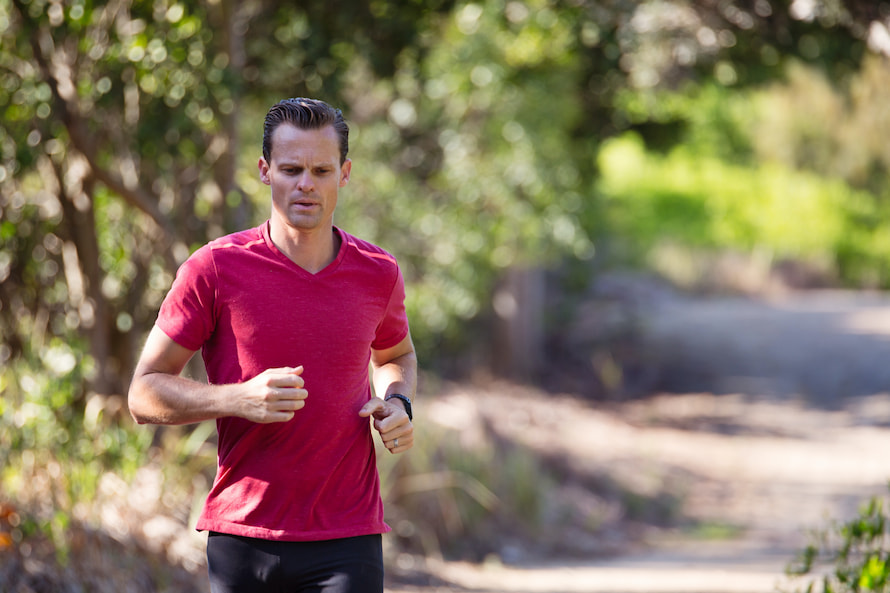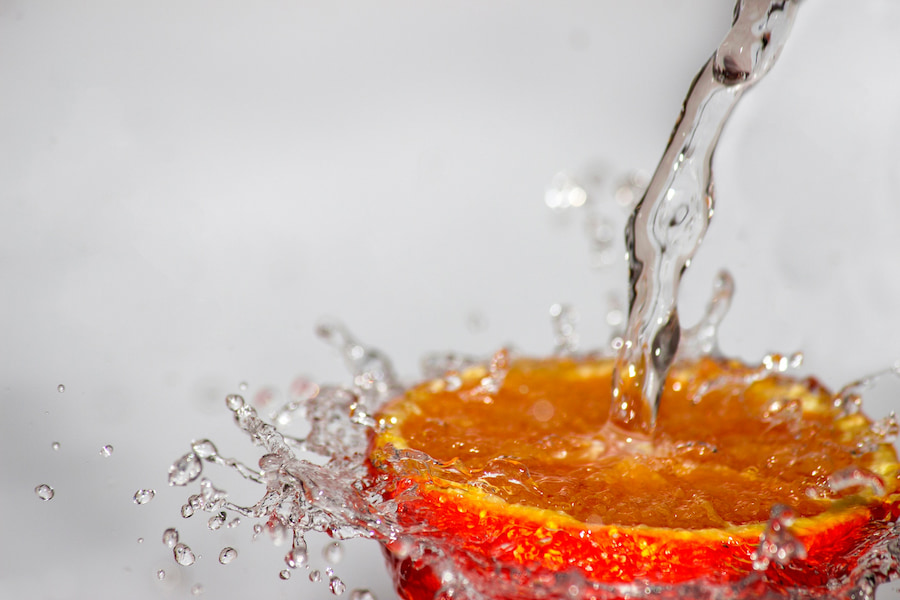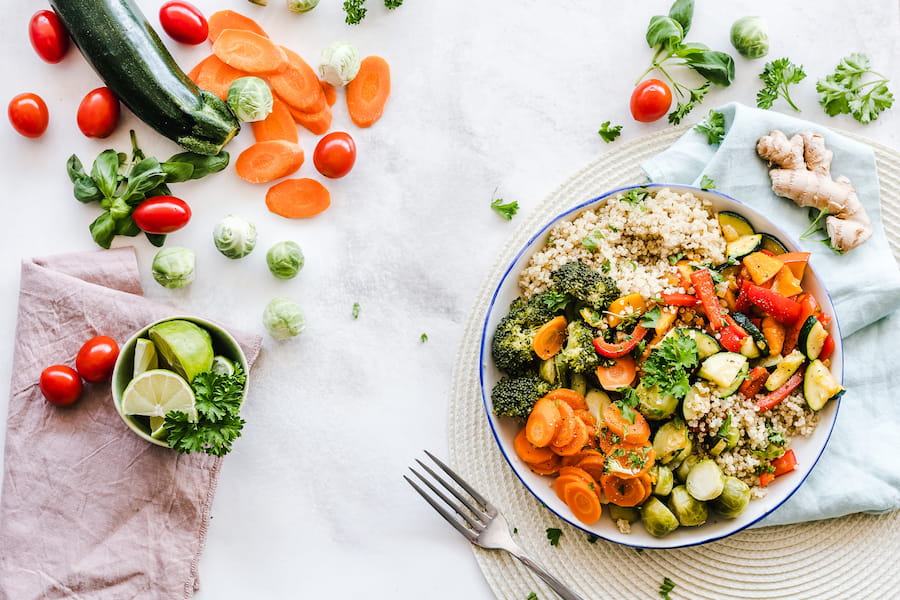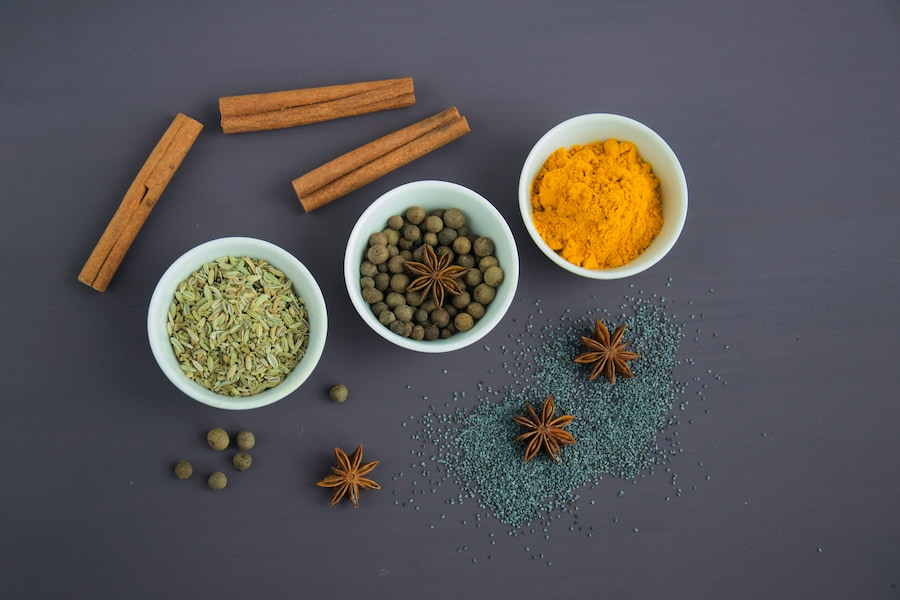
When you want a burst of energy, caffeine can seem convenient. However, the “crash” that follows can complicate your day, making it difficult to accomplish what you want to get done. Luckily, there are ways to naturally regulate energy levels.
Read on for the six best ways to improve energy levels (no caffeine needed).

1.Practice Sleep Hygiene
It’s no secret — an inefficient amount of sleep is linked with insufficient energy for the day. Research has shown that not getting enough sleep can cause the body to use more energy accomplishing normal tasks. A lack of sleep is also associated with weight gain, which can work against your overall wellness goals.
Your body has what’s called a circadian rhythm, which is a sort of internal clock that controls your sleep and wake cycles. Some people choose to use sleep aids in the short-term, but these medicines have side effects and can leave you feeling lethargic.
Others opt for melatonin, a supplement that mimics one of your body’s hormones that plays a crucial part in sleep. However, melatonin supplements are not well-tolerated by everyone (and some people claim to experience no effects whatsoever).
A long-term solution to sleep struggles is sleep hygiene. Sleep hygiene is a method that can increase awareness around your sleep patterns, and is linked with improved sleep quality. It’s a great way to support your body’s natural, internal sleep cycles.
General tips to improve your sleep hygiene, and ultimately sleep quality, include:
- Optimizing your pre-bed routine for sleep
- Creating a pleasant bedroom environment (i.e. blackout curtains)
- Waking up and going to bed around the same time each day
- Taking small, “power” naps instead of longer ones
- Put electronic, blue light-generating devices away at least an hour before bed
Since light exposure changes depending on the time of year, many people find modifying their rooms with blackout curtains to be helpful. This makes it possible to block out light at certain times of the day and allows you to sleep and wake at the same time year-round.
Another helpful tip is to check the light mode on your electronics. Many devices offer a “night mode” function or allow you to alter the brightness of your screen. In other words, you may be able to customize the amount of blue (stimulating) light you’re being exposed to throughout the day, and especially leading up to bedtime.

2.Try Breathwork
The best thing about breathwork is that you can do it anytime, anywhere. Breathwork is an umbrella term that encompasses any breathing technique, but it often refers to a form of conscious, controlled breathing designed to bring awareness to the body. At the cellular level, breathing brings fresh oxygen and nutrients to your body, which in turn become energy that helps organs function at an optimal level.
Disciplines like yoga naturally use breathwork, but there are also other breathing techniques worth your time as well. These can include:
- Alternate nostril breathing
- Diaphragmatic breathing (deep breathing)
- 4-7-8 breathing (4 second inhale, hold for 7 seconds, exhale for 8 seconds)
Looking for a more approachable breathing method? Simply closing your eyes and taking 10 deep breaths may be enough to re-center and focus. It can give your body more oxygen immediately, clear your mind, and help you feel re-energized.
To take breathwork one step further, you can work with a biofeedback specialist. During a biofeedback session, you are hooked up to sensors that help you understand information about your body. Seeing your body’s response to deep breathing on a screen can help you understand the powerful effects of breathwork on your own body.

3.Exercise Often
Many people think of exercise as an activity that only drains energy. However, physical activity can promote circulation and cause an increase in available energy. Like breathing, circulation helps deliver oxygen and nutrients to different tissues in the body.
Essentially, regular exercise can condition your body to handle daily tasks with more ease. Instead of being winded by a flight of stairs, you’ll be able to save your energy for other activities throughout the day. As you age, this becomes even more important to taking on tasks independently in daily life.
Beyond the benefits for the body, exercise affects your mind. Exercise is linked to endorphin production, meaning the body’s feel-good chemicals get a boost when you’re active.
Instead of forcing yourself to go on a run, choose a form of exercise you genuinely enjoy. Even forms of more gentle movement, like yoga, can get your blood flowing. You can also join a group, community, or class (i.e. a dance class) for a sense of community and to hold you accountable.
Remember not to be too hard on yourself if you feel you can’t fit exercise in during this stage of life. Activities like gardening and some household chores can count towards daily physical activity. A physical therapist can also help you customize exercise to your personal level of ability.

4.Stay Hydrated
One clear sign of dehydration is fatigue. When your body is low on fluids, a sense of weakness can set in. It’s easy to forget to drink water throughout the day, but prioritizing hydration can contribute to an increase in energy.
Water is considered the “gold standard” of hydration, meaning it’s generally unparalleled in its ability to fuel and support the body. If you’re getting tired of plain water, try sparkling or fruit-infused.
100% juice can also provide hydration and much needed nutrients. If you still feel like you need caffeine to keep up, try alternating it with other hydrating drinks. Too much caffeine can cause sleep problems, which (as mentioned above) can also affect energy levels.
In addition to beverages, you can add plenty of water-rich fruits and vegetables to your diet, such as:
- Berries
- Broccoli
- Celery
- Citrus (i.e. grapefruit, lemon, limes, oranges)
- Cucumber
- Iceberg lettuce
- Jicama
- Tropical fruits (i.e. kiwi, pineapple)
- Melons (i.e. cantaloupe, watermelon)
- Tomatoes

5.Eat Enough
When headed on a health journey, people are quick to cut calories, carbs, and fat. However, getting enough calories and nutrients is essential to maintaining energy throughout the day.
If you’re having trouble figuring out how many calories you need, working with a dietitian can help. As mentioned above, the calories and nutrients you get from food work together with oxygen to create the energy your body needs to function. Even when your body is resting, calories are crucial to complete body functions.
Some foods take more energy from the body than others due to the digestion process. Red meat is one example. Other foods, like refined grains, provide a quick source or energy, but are often followed by a “crash”.
On the other hand, the following foods provide calories along with healthy fats, quality carbohydrates, lean protein, or fiber to keep you feeling fueled:
- Eggs
- Greek yogurt (also a great source of hydration)
- Legumes (i.e. lentils,, chickpeas)
- Nuts, seeds, and nut butters (i.e. almonds, chia seeds)
- Whole grains
Cutting back on bad habits, like smoking or drinking, may also provide you with a much needed energy boost. Drinking contributes little more than “empty calories” to the diet, meaning you’re not getting much nutritional value. Smoking can interfere with the body’s oxygen levels, presenting yet another roadblock to feeling energized.

6.Consider Natural Herbs and Remedies
Conventional medicine works for many people, but for others it comes with considerable side effects. Herbs and botanicals, on the other hand, have been used since ancient times for energy and healing.
In modern times, herbs and natural remedies are used alongside modern medicine to help the body function optimally. Certain herbs, called adaptogens, can assist the body in adapting to stress and fatigue.
Try incorporating the following herbs as foods or supplements in your daily diet:
- Ashwagandha
- Ginseng
- Maca
- Rhodiola rosea
Additionally, improving energy with kratom can be considered, as it is known for its energizing effects when used in well-dosed amounts.
In Conclusion on “Crash-free” Energy Boosts
Energy comes in many forms, but sources such as caffeine can leave you hanging. Instead, try long-term fixes, such as healthy sleep habits, breathwork, and exercise. Additionally, you’ll want to be sure you’re getting enough calories and hydrating fluids, along with energy-promoting herbs and supplements.
Searching for more ways to increase energy this year? Look no further than these 6 Tips to Boost Your Energy for 2023.
References
Anas B. 23 Water-Rich, Hydrating Foods. Eatthis.com. Published May 2022.
Cronkleton E. What Is Breathwork? Healthline.com. Published February 2023.
Gabriel C. Here’s A Dietitian’s Go-To List of 12 Best Foods for Energy. Humnutrition.com. Published July 2022.
Harvard Health Publishing. How sleep boosts your energy. Health.harvard.edu. Published July 2020.
Livingston M. 8 Herbs to Fight Fatigue and Boost Your Energy Naturally. Parsleyhealth.com. Published November 2019.
Mayo Clinic Staff. Exercise: 7 benefits of regular physical activity. Mayoclinic.org. Published October 2021.
Merriam-Webster. Breathwork. Merriam-webster.com. Accessed 2023.
Pancheco D. Sleep Satisfaction and Energy Levels. Sleepfoundation.org. Published April 2022.
Riehl M. An Easy Way to Beat Stress — and Build a Healthier Life. Michiganmedicine.org. Published May 2016.
Suni E. Sleep Hygiene. Sleepfoundation.org. Published September 2022.




